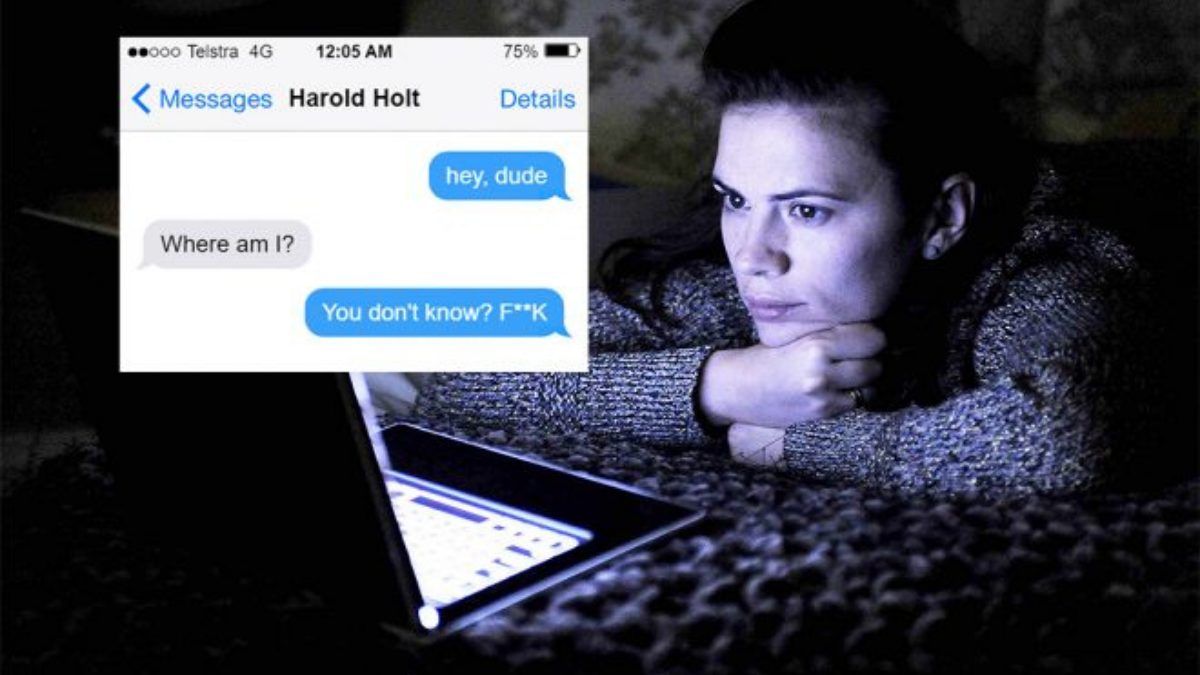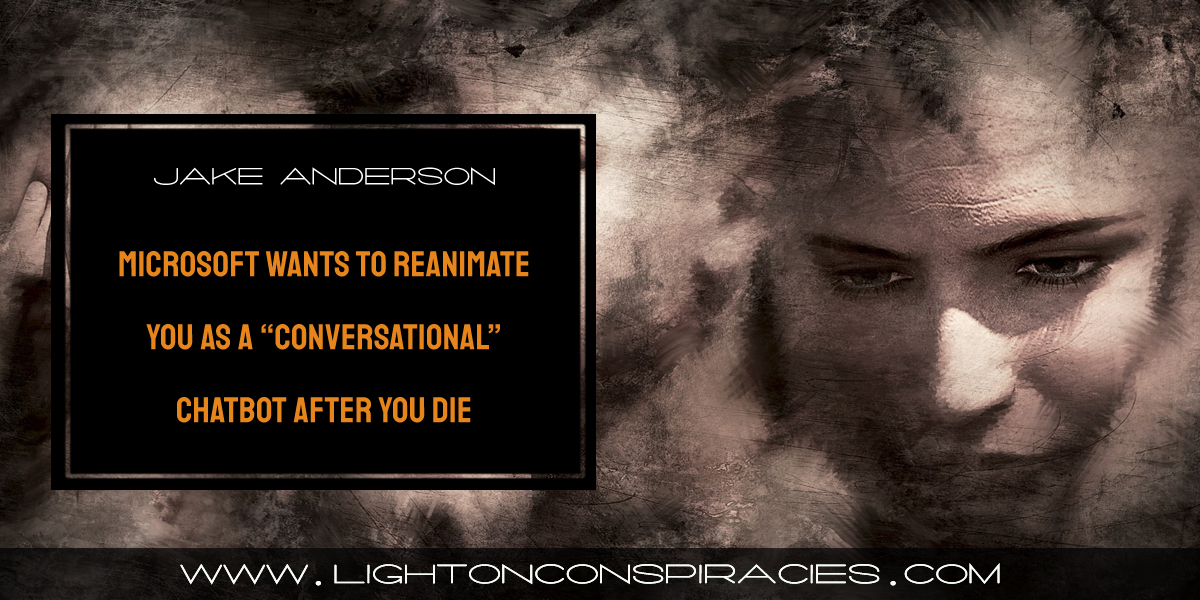
However, Black Mirror brought an especially sharp edge to the genre, so closely mirroring our own society’s disintegration into techno-dystopian chaos that at times it felt like a real-time satire that was a bit too on the nose.
Now, in a move that eerily invokes a number of Black Mirror plot arcs, reality seems to be trying to reclaim its monopoly on dystopia. The tech giant Microsoft has filed a patent for software that can “revive” a version of a person who has died and use that version as the basis for a conversational chatbot.
The patent describes harvesting “social data,” which includes images, voice data, emails, text messages, social media posts, written letters, user profile and behavioral data, transactional data, geo-location data and more, in order to “modify a personalized chat index in the theme of certain person’s personality. This personality may resemble anyone for whom enough social data can be found and could also be a historical figure, a fictional character, or a celebrity.
In other words, Microsoft plans to take the concept of data mining even further, imagining that even after we die it can continue to collect the digital breadcrumbs we’ve left behind online and on our computer devices. It further fancies reassembling those relics to construct lifelike character-versions of our personalities, mannerisms, and behaviors.
Obviously, not every patent leads to a finished product and many corporations, especially the Big Tech behemoths, file rafts of moonshot patents every year in the anticipation of future developments. But the very fact that Microsoft would see potential here strikes some as haunting, especially given our recent experience with the first generation of celebrity holograms.
It begs the question: would the average person want a chatbot themed off them guiding consumers through a user interface? Would consumers even want that? A chatbot themed on Elvis or Groucho Marx makes more sense, but a deceased friend or family member?
As noted by RT, Black Mirror‘s creative synergy has been oddly prescient, depicting the “social credit score” scenario before it was firmly on the public radar. There is also an episode in which a pop singer, played by Miley Cyrus, is algorithmically simulated by her record label so that when the real-life singer dies they can continue making money off her likeness forever.
Clearly, Microsoft is willing to invest in the R&D needed to explore the idea of chatbots themed off our personalities, but would such an idea fly? Even if they are able to elude the uncanny valley associated with machine simulations of humans, would the average person want to interact with a digital recreation of a dead loved one?












